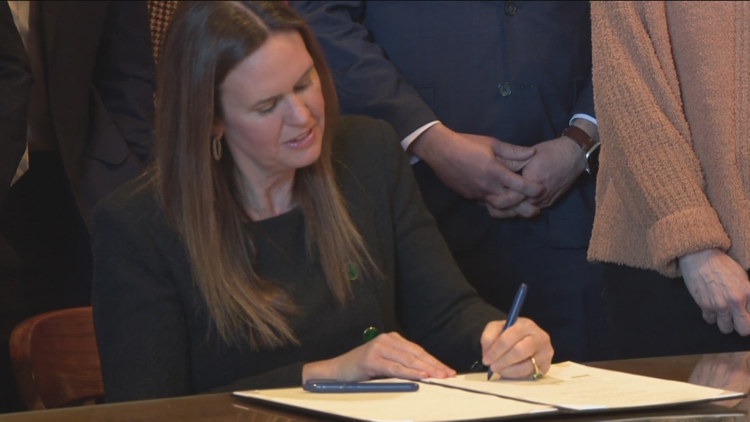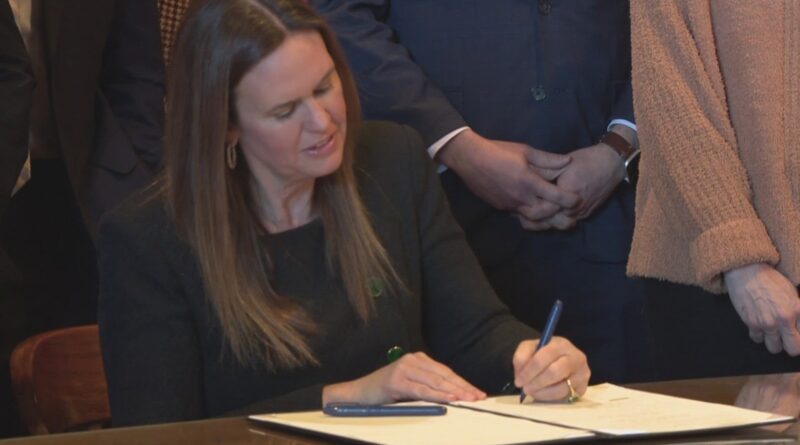Districts react to pair of new Arkansas laws make big changes at schools

“Hopefully this is a step towards universal free lunch as well in the not-too-distant future,” Fayetteville Public Schools Superintendent Dr. John Mulford said.
FAYETTEVILLE, Ark. — On Thursday Governor Sarah Huckabee Sanders signed into law two significant bills that aimed at making impactful changes to Arkansas schools by the start of the next academic year.
The legislation includes SB59, a statewide mandate for free breakfast in public schools, and the Bell to Bell, No Cell Act, which looks to ban student cell phone use during school hours.
During her January State of the State Address, Sanders underscored the importance of supporting Arkansas students both in the classroom and outside of it, in terms of nutrition and mental wellbeing.
“I think it is a huge financial benefit for families,” Fayetteville Public School Superintendent Dr. John Mulford said of the free school breakfast law. “Hopefully this is a step towards universal free lunch as well in the not-too-distant future.”
Mulford said that around 41% of the districts over 10,000 students rely on free or reduced-price meals.
The Fayetteville district, according to Mulford, already faces $150,000 in unpaid meal balances this year. He added that the district does not refuse a student a meal and added that the free breakfast program brings financial relief to both families and the district.
Meanwhile Rogers Public Schools Superintendent Dr. Jeff Perry said the school district has over 50% of students who use free and reduced lunches.
He said the district had free breakfast during the COVID-19 pandemic, so implementing the new law come Fall 2025, should not be difficult.
“I think it’s a great idea to be able to provide that free breakfast to a student and do believe that the vast majority of our students will benefit from that,” Perry said. “If a child is hungry, if the child is struggling with hunger, it’s always going to be an issue, and it will impact them until they get into that lunch period.
Both districts also tell 5NEWS that adapting to the Bell to Bell, No Cell Act should not be too much of a challenge.
On Thursday, Sanders signed the bill into law that looks to ban cell phone use during school hours starting the 2025-26 school year.
“This past fall was the first time, at least in a while, where we’ve had an expectation of no cell phone access during specified times,” Mulford said. “So we’ve been heading down that path, and now that we know that it’s a statewide expectation, now it’s just a matter of working through the details.”
Similarly, Perry said Rogers’ elementary and middle school students have already been introduced to rules regarding no cell phones, but high school students may have to adjust.
“As the new law goes into effect, then we will build policy around that new law, and just let our students know, and our teachers know and administrators know that the new policies are in place,” Perry said.
Mulford added that cell phone usage is more about social media and student health, than the phone itself.
“When we talk about student mental health and focus on academics, it’s often those social media components and platforms and time that takes to do all of that, that diverts their focus and creates poor self-image,” Mulford said.

